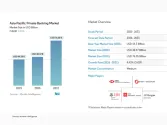
Why blood-based Alzheimer’s diagnostics is an emerging market
The market is influenced by a rising diagnostic demand.
The market for blood-based diagnostics for Alzheimer’s disease (AD) will emerge as a less invasive, lower-cost and more widely accessible form of testing, according to a BMI report.
The market is influenced by increased diagnostic demand which current methods are unable to cope with due to associated barriers.
“Currently, diagnosis of AD requires high-cost and time-consuming brain imaging, or a sample of cerebrospinal fluid from a lumbar puncture procedure, which can be painful,” BMI said.
To address this, the report revealed that blood-based biomarkers (BBMs) present a less invasive and faster method of testing compared to other diagnostic tests.
Moreover, the development and approval of BBMs can potentially improve the clinical trial landscape for AD treatments by minimising the cost for biotechnology companies and the clinical burden for patients.
“Current clinical trials have a high neuroimaging burden for patients, with the requirement for PET scans at various time points throughout a trial. The implementation of BBMs could reduce the need for frequent PET scans,” BMI added.



















 Advertise
Advertise




